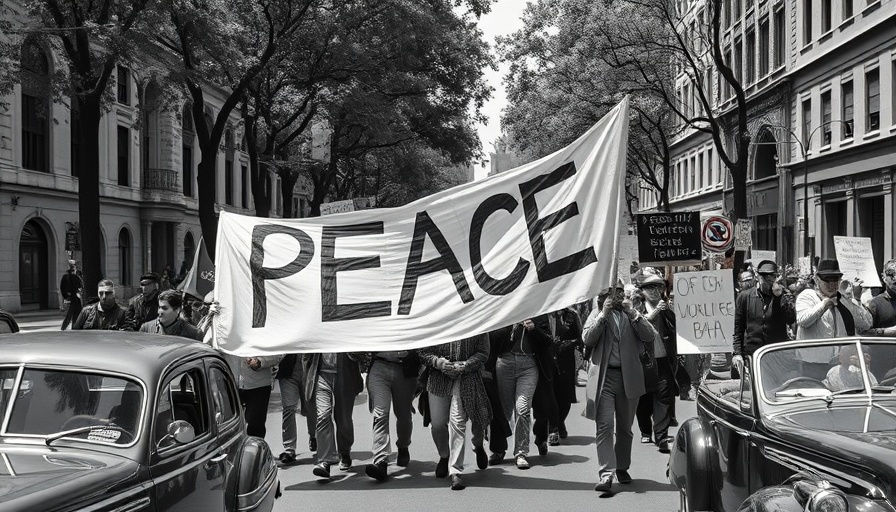
Protest Songs: A Reflection of America’s Turbulent Times
The end of the Vietnam War in 1975 marked more than just the conclusion of a conflict; it was a momentous turning point for protest music in America. Musicians intertwined melodies with dissent, creating anthems that captured the sentiments of a generation. The lyrics of artists such as Joan Baez and Bob Dylan echoed the struggles and hopes of millions who rallied against the war and other injustices. From the haunting strains of ‘Masters of War’ to the powerful ‘For What It’s Worth’ by Buffalo Springfield, these songs defined an era and provided a voice for the marginalized and the angry. Even today, these anthems resonate with contemporary listeners who find parallels between past struggles and current sociopolitical issues.
The Evolution of Protest Music: From Folk to Modern Hip-Hop
As the years progressed, the genre of protest music evolved, spanning across diverse musical styles and cultures. Modern artists, including Kendrick Lamar and Childish Gambino, carry the torch forward, addressing today’s challenges through their work. In Lamar's ‘Alright,’ listeners find hope amid despair, echoing sentiments reminiscent of the past. The evolution illustrates a cultural tapestry where each generation of artists builds upon the legacy of those that came before. This evolution not only reflects the changing soundscape of music but also the dynamic lessons learned from history that continue to inspire activism.
Influence of Cultural Events on the Music Scene
The backdrop of cultural events, marches, and social movements shapes the music created during those times. Historic protests against racism, inequality, and environmental issues have given rise to a new wave of protest songs. Musicians today often respond to the urgent call for change brought forth by events like the Black Lives Matter movement, just as their predecessors responded to the atrocities of the Vietnam War. This unifying effect of music at social gatherings reinforces its power to inspire and mobilize communities across cultural divides. Artists like Residente use their platforms to confront political issues, reminding us of the vital role of music in advocacy.
The Grassroots Influence: Local Voices Amplified
In local settings, community-based events and rallies provide a stage for upcoming artists to lend their voices against injustice. Orlando, a city steeped in rich cultural diversity, showcases local talent at concerts and public demonstrations that resonate with the community's values. Emerging artists gain exposure by connecting with local audiences, making protest music not only a powerful societal tool but also a deeply personal one. In this way, local events become a breath of life for artists and activists alike, where the essence of protest music thrives through grassroots efforts.
Consequences of Ignoring the Call for Action
However, the risk of complacency looms large. As historical awareness wanes, there is a tendency to forget the importance of protest music as a catalyst for change. The vibrant messages captured in the tunes of yesteryear need to reach new ears. Ignoring these messages could mean losing valuable lessons about principles like justice, equality, and societal progress. Artists and communities must continue to advocate for social justice, ensuring that the lessons drawn from previous generations resonate deeply enough to instigate meaningful conversations.
A Testament to Resilience: Modern Protests Through Music
Today’s protest music not only pays homage to its predecessors but also evolves with the spirit of modern-day activists. Artists like Beyonce and Oliver Anthony reflect on personal struggles and social dilemmas faced by ordinary people, garnering attention while fostering connections with their audiences. As movements continue to gain momentum, the soundtrack of modern protest remains influential, granting individuals the courage and motivation to stand up for their beliefs.
The Future of Protest Music: What Lies Ahead
Looking ahead, the trajectory of protest music remains an open question. As global movements amplify the need for change, it is likely that new genres, styles, and artists will emerge, creating a compelling layer in the discourse of social justice. Future generations will undoubtedly draw inspiration from today’s fight, mirroring how the past shapes the art of tomorrow. The critical message is clear: protest music will continue to serve as a powerful medium for expression, urging us to remember, to act, and to strive for a better future.
As we continue to navigate the complexities of our time, let us draw inspiration from the courageous voices of musicians who dared to speak out. They paved the way for artists today who, through their music, challenge the status quo. So, whether attending a local concert or engaging with the latest music updates, remember the history that resonates within every note.
 Add Row
Add Row  Add
Add 






Write A Comment